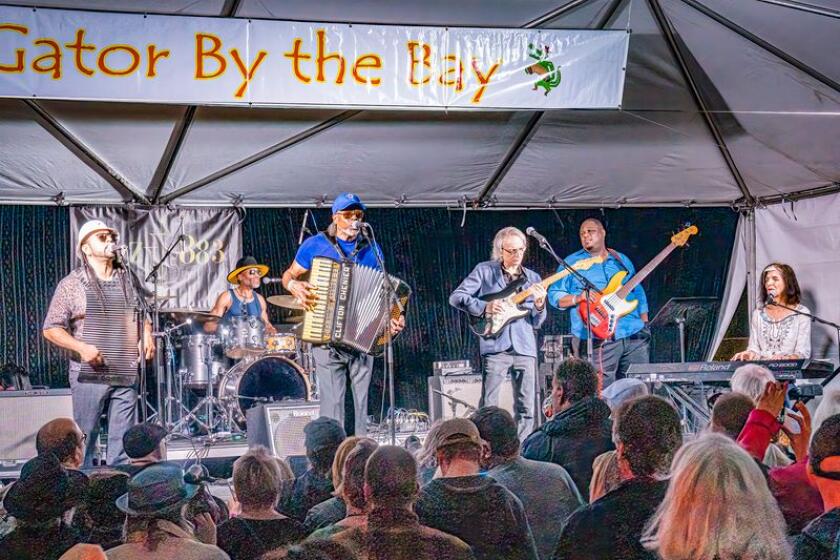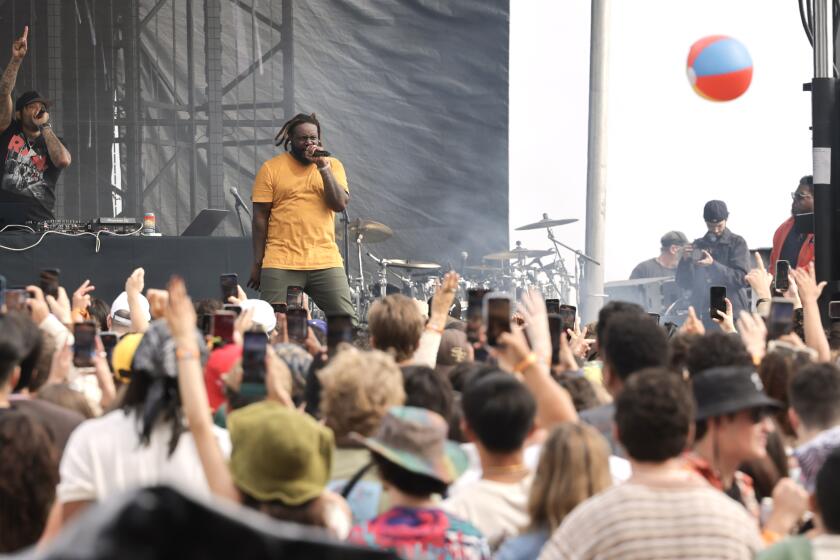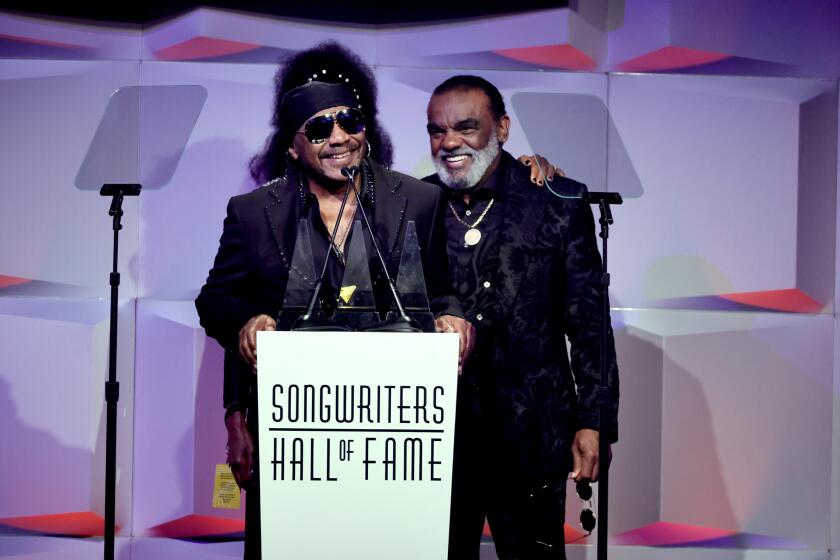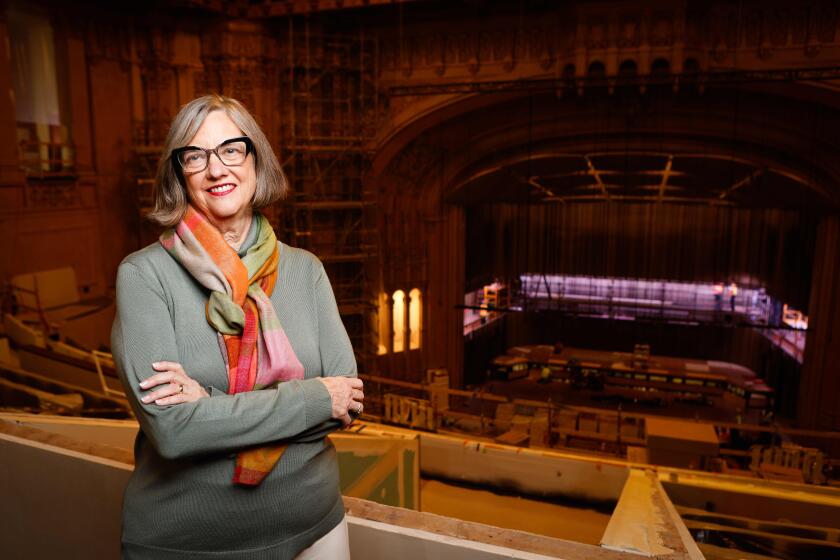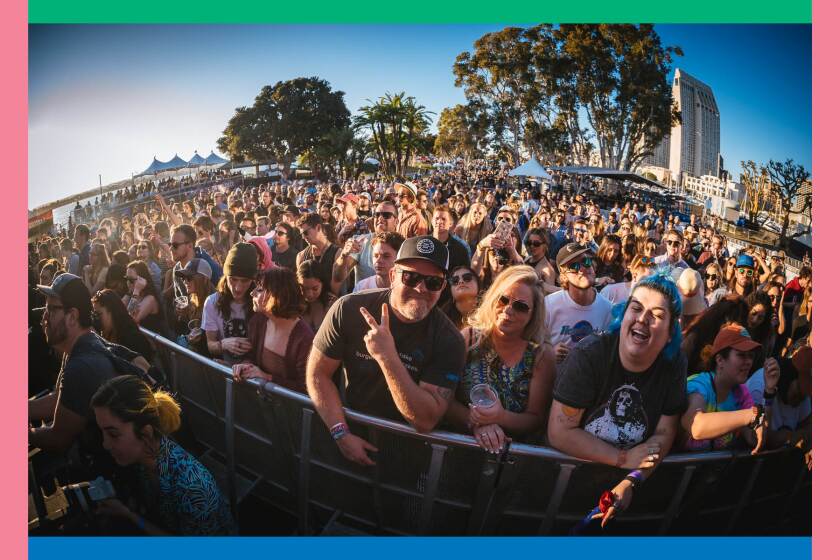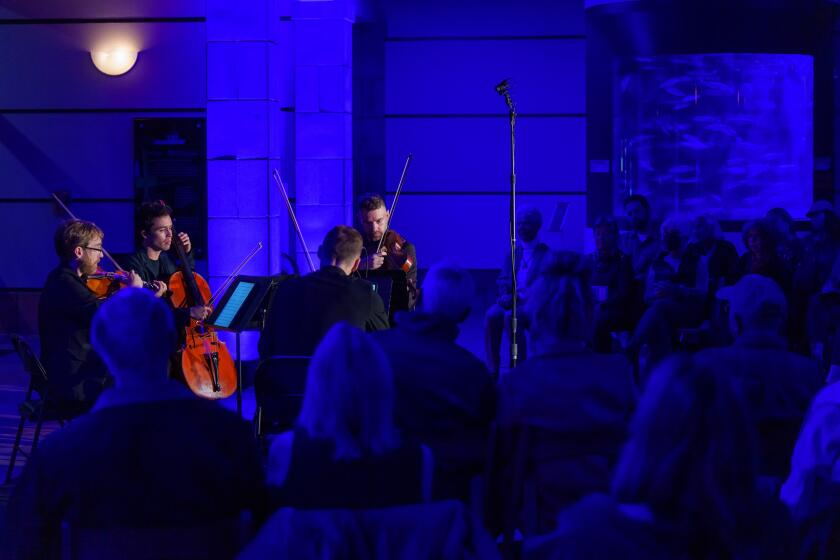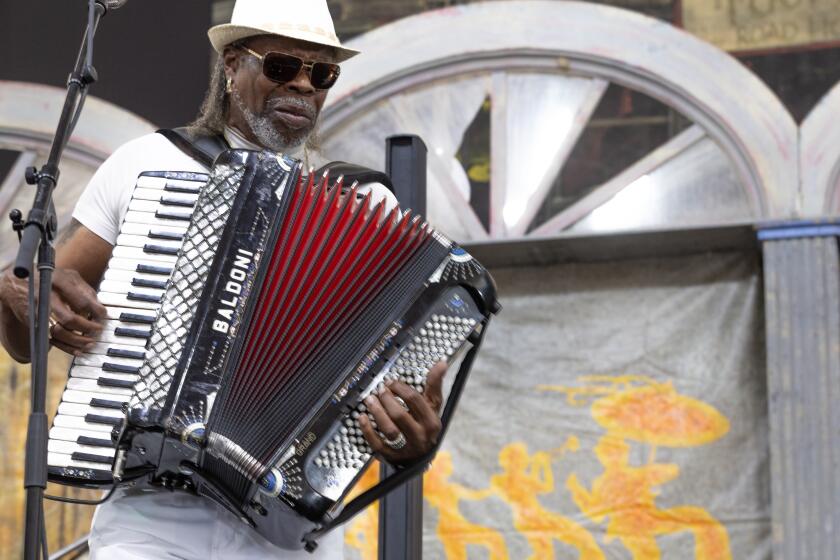Lila Downs traces her musical diversity and social activism to her days as a Deadhead
Different worlds converge, rather than collide, in the improbably varied life and music of Lila Downs. Like the Grateful Dead, the fabled San Francisco band she used to follow from city to city and concert to concert, she embraces the earthy, the cosmic and much in between.
Downs, a Grammy Award-winning singer-songwriter and a devoted social activist, was born in Oaxaca. Her Mexican mother was a Mixtec cabaret singer. Her American father was an art professor. She grew up in Mexico, Minnesota and Southern California, and her colorful stage attire salutes the indigenous Indian tribes of Mexico.
Downs, who performs Thursday at Humphreys Concerts by the Bay, graduated from the University of Minnesota with a multidisciplinary degree. She majored in both classical voice and cultural anthropology, with an emphasis on the symbolism in textiles created by Mexican women.
Her debut album, 1994’s self-produced “Ofrenda,” combined traditional Oaxacan and Mexican favorites with songs Downs wrote in three languages: Spanish, Mixtec and Zapotec. But before she graduated and made her first album, she had a more pressing matter to pursue.
“I dropped out, ran around and lived on the streets for a while and in a kind of hippie commune in Minneapolis,” Downs, 48, recalled. “We would follow the Dead and would be outside their concerts. I made jewelry, and my friends ...”
She giggled, then paused for a moment to think of the most diplomatic way to describe her friends’ Dead-related activities.
“...did interesting things to get by,” continued Downs, who in the late 1980s also attended several Rainbow Family gatherings. Held in remote locales, those gatherings served as a template of sorts for the annual Burning Man festival that now take place each year in the Nevada desert.

“I think you never stop being a hippie,” said Downs, speaking by phone from a recent concert stop in Portland, Ore.
“After you find that community, it’s like you get a new deal on life and appreciate life in a different way. That notion of brotherhood is also something — I later found out — that is very particular to Native American philosophy. And, though I kind of knew that philosophy as a child growing up in Oaxaca, I wasn’t that conscious of it.
“The Dead and their values, which attracted me so much, were all about this brotherhood that was respectful, beautiful, giving and about the notion of exchange, without having anything to do with money. These are all principles that I have rediscovered in my own native culture and try to teach whoever I run into through song.”
Here, there and everywhere
Given Downs’ background, it should come as no surprise that she is comfortable singing in a broad array of stylistic settings. Her past collaborators range from top Irish music group The Chieftains and guitar great Ry Cooder to Santana, former San Diego jazz trumpeter Brian Lynch and Latin-music superstar Juanes.
“The quality of her voice isn’t confined to one style of music,” Lynch told the Union-Tribune, after Downs performed on “Simpatico,” his Grammy-winning 2007 album.
“No matter what she’s singing, she transcends genre. But having said that, she’s very concerned with exploring musical tradition, making something new in a very organic way … pay respect to tradition and make something new out of it.”
Downs is married to saxophonist Paul Cohen, her most frequent collaborator. Of all her musical partners, she is proudest of having worked with Mercedes Sosa.
The Argentine vocal great joined her in a duet on “Tierra de Luz,” a standout song on Downs’ superb 2008 album “Shake Away.” Sosa died the following year. She was known as “the voice of the voiceless,” a testament to her repeatedly singing out on behalf of the poor and disenfranchised.
“Mercedes was the person whose music I often heard when I did my thesis on weaving in native communities in Oaxaca,” Downs recalled.
“I had never heard her before, even though the Oaxaca village I grew up in played a lot of protest music by people like (Chile’s) Violeta Parra and (Cuba’s) Silvio Rodríguez. When I heard the power of Mercedes’ instrument — I also have a contralto singing voice — she changed my life.
“I was going to be an anthropologist. But when I heard her, I dropped everything and said to myself: ‘I have to continue in art. I have to change things.’ It was such a gift to meet her and hang out with her in Argentina.”
Making a difference
Downs uses her music to entertain and inform her listeners, often in the same breath, without being preachy or didactic.
Her 2004 version of “La Cucaracha” has a distinct Middle Eastern music tinge and updated lyrics, which reflected on the U.S.-led war in Iraq.
Her stirring 2001 album “Border (La Linea)” was inspired by — and dedicated to — Mexican migrant workers.
“It was very much about immigration, hypocrisy, drug lords and the entire story that has been going on there for quite a while,” she said. “It is also very inspired by the music of the border — Tejano, norteño and a little bit of banda.”
These issues were very much on Downs’ mind when she performed as part of last September’s free RiseUp AS ONE all-star concert. Billed as “A Celebration of Music and Unity,” it was held on 15 acres adjoining Cross Border Xpress, the international point of entry connecting San Diego to Tijuana’s A.L. Rodriguez International Airport.
Downs used the televised concert to debut a new bilingual song she had written about Donald Trump. Entitled “The Demagogue,” it contains such lines as: I’m gonna show that my love is much stronger than hate / I’m gonna call to the four winds / I’m gonna change my fate.
In her spoken introduction to the song, Downs told the RiseUp audience: “I want to thank all the beautiful Latin American people that come from different places to work hard and to demonstrate our pride of identity and humility. We know how to be sweet and, at the same time, we can be strong, to be able to work hard — and that’s the part that they don’t respect. With our unity, we have to show the beauty of our pueblos, the harmony of our music and the greatness of our heart.”
Downs did not include “The Demagogue” on her upcoming new album, which is due out next month and includes a guest appearance by top Spanish flamenco singer Diego El Cigala. She is dedicating the album to “women who have been violated in some way,” and it draws heavily from the boleros and Cuban danzón of the 1940s and ’50s.
“Music and anthropology are both very important to me,” Downs said.
“I think I’m less explicit in my lyrics than I was 15 years ago, because I have found music can sometimes be even more powerful when it is very simple and beautiful, instead of being angry. But there’s room for anger, too, and I still have some anger in me.”
Lila Downs
When: 8 p.m. Thursday
Where: Humphreys Concerts by the Bay, 2241 Shelter Island Drive, Point Loma
Tickets: $48, plus service charges
Phone: (800) 745-3000
Online: ticketmaster.com
Twitter @georgevarga
Get U-T Arts & Culture on Thursdays
A San Diego insider’s look at what talented artists are bringing to the stage, screen, galleries and more.
You may occasionally receive promotional content from the San Diego Union-Tribune.


